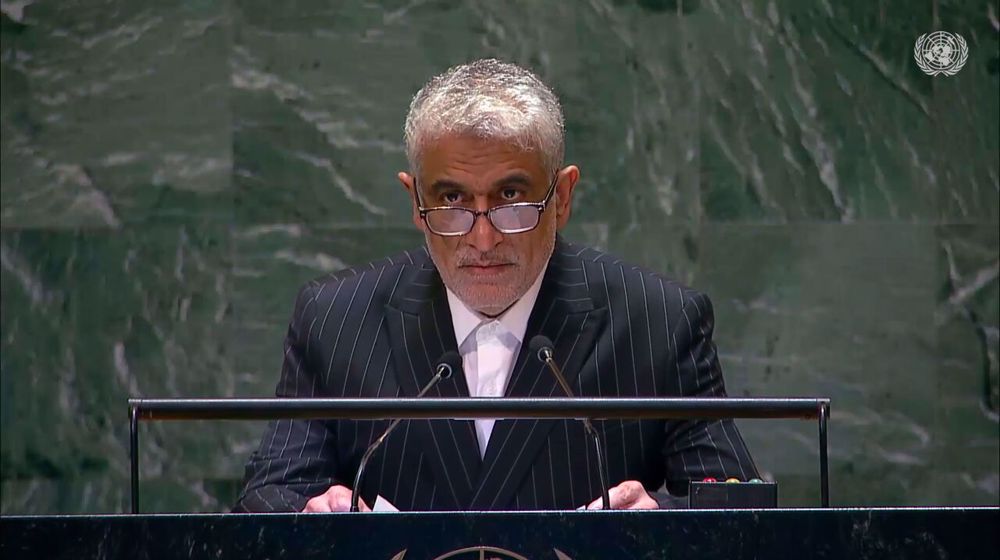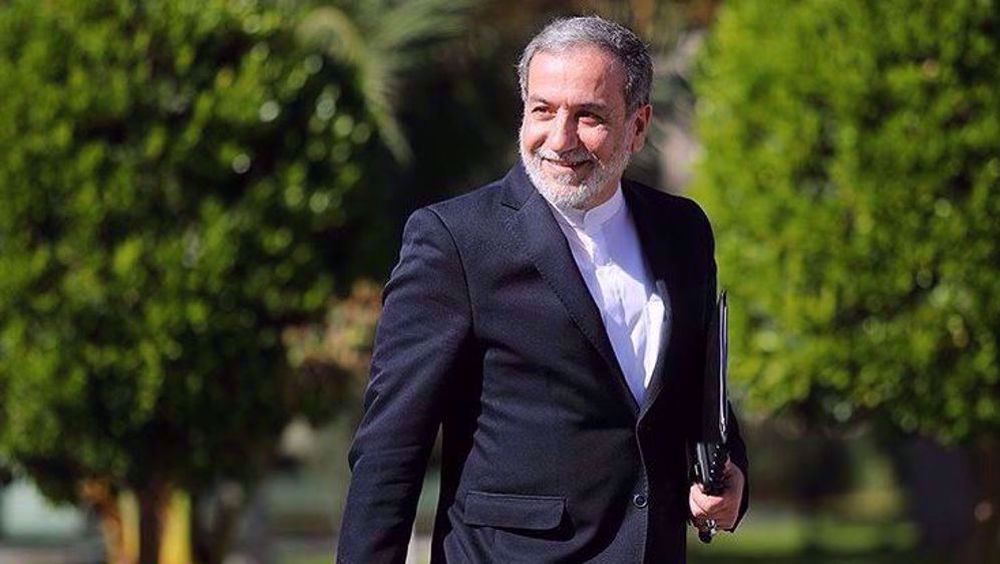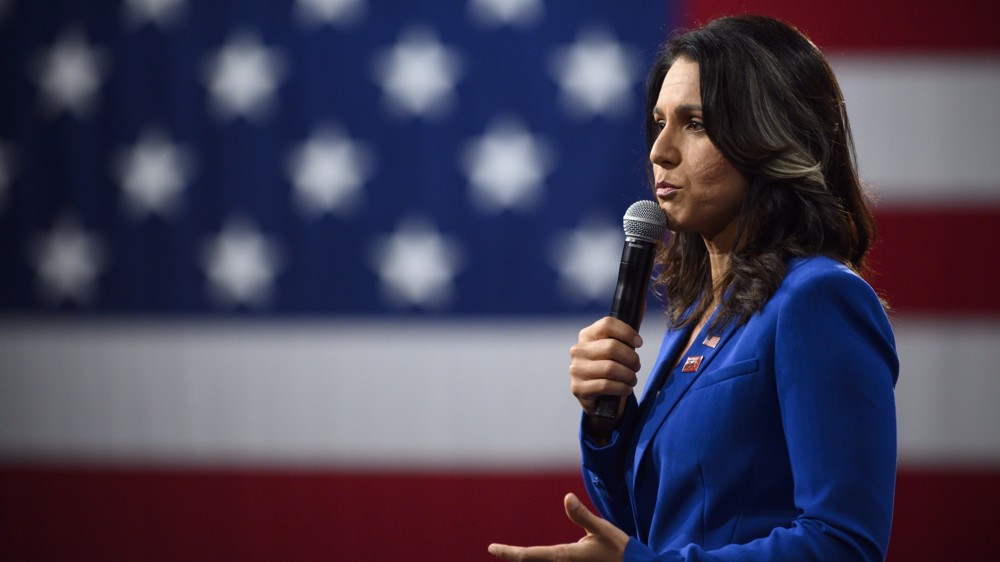Iran, US resume nuclear talks in Swiss city of Lausanne
Iran and the United States have resumed the latest session of their current round of talks in the Swiss city of Lausanne in an attempt to bridge differences on the outstanding issues pertaining to Tehran’s nuclear program.
Iran’s Foreign Minister Mohammad Javad Zarif and US Secretary of State John Kerry opened discussions in Lausanne on Tuesday.
Head of the Atomic Energy Organization of Iran (AEOI), Ali Akbar Salehi, Zarif’s deputies, Abbas Araqchi and Majid Takht-e Ravanchi, special assistant to Iran's president, Hossein Fereidoun, US Energy Secretary Ernest Moniz and US Under Secretary of State for Political Affairs Wendy Sherman are also present in the meeting.
Zarif meets EU peers

Following his first day of talks with Kerry, Zarif flew to the Belgian capital of Brussels and held talks with his German, French and British counterparts, respectively, Frank-Walter Steinmeier, Laurent Fabius and Philip Hammond.
The foreign policy chief for the 28-member European Union, Federica Mogherini, was also present in the talks.
Speaking to reporters after the meeting, Mogherini, who is negotiating with Iran on behalf of the P5+1 countries, said that all sides were aware of the fact that it is important to seal a good deal, and that it was not clear whether "a technical solution" to fill the remaining gaps can be found.
"I see the elements for a deal to be reached, but I still see the gaps that need to be filled," she said.

The UK foreign secretary also said Iran and the six countries have made progress toward reaching an agreement to settle the Western dispute over Tehran’s nuclear program.
"We're still making progress, but there is a long way to go if we're going to get there," Hammond said after the talks.
The talks were aimed at narrowing gaps in the positions between Iran and the six countries that could see Iran freeze parts of its nuclear energy program in exchange for the lifting of all sanctions.
The French foreign minister, meanwhile, said, "It's always useful to talk but we, the French, want a solid deal."
"Certain points are yet to be resolved, we hope we will be able to resolve them, but as long as it's not done, it's not done," Fabius added.
Ahead of the meeting, the German foreign minister urged the negotiators from Iran and the P5+1 group of countries to "seize this opportunity" of talks in Brussels and in Switzerland this week to finally clinch a so-far elusive deal.

The latest round of negotiations about the Iranian nuclear program kicked off in the Swiss city on Sunday with Salehi and Moniz holding high-level technical talks. Experts from Iran and the US as well as the AEOI spokesman, Behrouz Kamalvandi, also participated in the meeting.
Speaking after his five-hour meeting with Kerry on Monday, Zarif said solutions to outstanding nuclear issues with the P5+1 countries are at hand although differences still remain between the two sides.
“We are closer to a solution in some cases and it can therefore be said that solutions are at hand, but in some cases solutions are still elusive,” the chief Iranian negotiator said.
Iran and the P5+1 countries – the United States, Britain, France, China, and Russia plus Germany – are seeking to seal a comprehensive nuclear deal by July 1.The two sides have already missed two self-imposed deadlines for inking a final agreement since they signed an interim one in the Swiss city of Geneva in November 2013.
SF/GHN/HMV

IAEA can resolve remaining issues through independent approach, Iran says

Deal within reach if US shows genuine will in Oman talks: Araghchi

US intel report: Iran ‘not building nuclear weapon’
VIDEO | Press TV's news headlines
VIDEO | Israel systematically cripples Gaza NGOs
VIDEO | Iran opens advanced nuclear medicine center
Israel beats drums of war in run-up to Iran-US talks
US war machine takes Yemen under 22 new attacks; 16 killed, injured in al-Hudaydah
Americans know extent of Iran’s defensive power; Iran doesn’t trust US, but will test it: FM
Organization of American Historians condemns Israel’s ‘scholasticide’ in Gaza
Iran gains $1.3 billion from its gold import spree: Report







 This makes it easy to access the Press TV website
This makes it easy to access the Press TV website